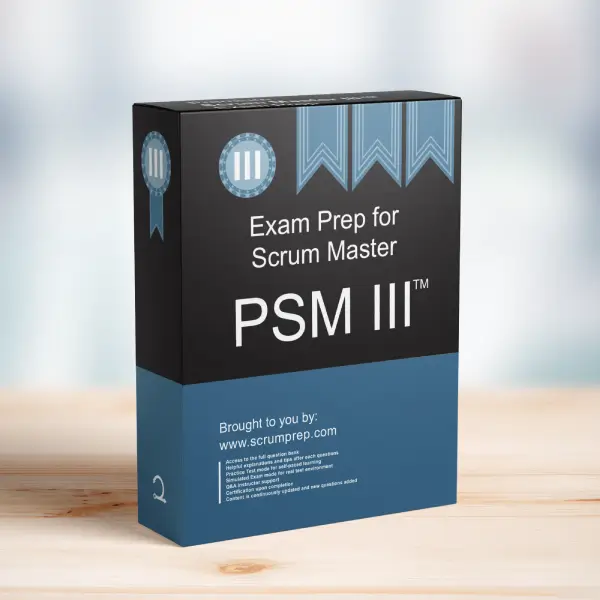Understanding “Zombie” or “Mechanical” Scrum
“Zombie” or “Mechanical” Scrum refers to a situation where a team or organization follows the Scrum framework’s processes, events, and roles in a superficial or ritualistic manner without fully embracing the underlying principles and values. This approach can lead to ineffective implementation of Scrum and poor outcomes.
Exam Question
What is meant by a team or organization practicing ‘zombie’ or ‘mechanical’ Scrum?
Explanation
Definition of “Zombie” or “Mechanical” Scrum
- Superficial Adherence to Scrum:
Explanation: Teams or organizations practicing “zombie” or “mechanical” Scrum go through the motions of Scrum events, roles, and artifacts without truly understanding or embracing the principles behind them. For example, they might hold a Daily Scrum every day because it’s a requirement, but the meeting lacks meaningful communication or collaboration. - Lack of Engagement and Adaptation:
Explanation: In a “zombie” Scrum environment, the team members might attend events like Sprint Planning, Daily Scrum, and Sprint Review, but they do so passively, without actively engaging or contributing to the process. There is also a lack of inspection and adaptation, which are critical to the empirical process control that Scrum is built upon.
Symptoms of “Zombie” or “Mechanical” Scrum
- Ritualistic Scrum Events:
Example: The team holds all the required Scrum events but treats them as check-the-box activities rather than opportunities for meaningful inspection, adaptation, and collaboration. For instance, the Daily Scrum becomes a status update rather than a discussion on how to achieve the Sprint Goal. - No Real Ownership or Accountability:
Example: The Scrum Team members, including the Product Owner and Scrum Master, do not take real ownership of their roles. The Product Owner might only focus on creating a Product Backlog but not engage with stakeholders or prioritize effectively. The Scrum Master might ensure that events happen on time but fail to facilitate true collaboration or remove impediments. - Failure to Deliver Value:
Example: The focus is more on following the Scrum framework rather than delivering value to the customer. The team might complete Sprints but consistently fails to deliver valuable and potentially shippable Increments because they are more concerned with following the process than with achieving meaningful outcomes.
Why “Zombie” Scrum is Detrimental
- Stagnation and Lack of Improvement:
Explanation: Because the team is not truly engaging with the principles of Scrum, there is little to no real inspection, adaptation, or continuous improvement. The team may be stuck in a cycle of ineffective practices, leading to stagnation and a lack of progress. - Misalignment with Scrum Values:
Explanation: “Zombie” Scrum is often characterized by a disregard for Scrum values such as commitment, courage, focus, openness, and respect. Without these values, the framework loses its effectiveness, and the team may struggle to collaborate, innovate, and deliver value.
How to Address “Zombie” Scrum
- Re-Education and Re-Alignment:
Explanation: The Scrum Master should work with the team to re-educate them on the principles and values of Scrum. This may involve workshops, coaching, or bringing in external expertise to help the team understand the “why” behind the Scrum framework. - Focus on Outcomes, Not Just Process:
Explanation: Shift the focus from merely following the process to achieving meaningful outcomes. The team should be encouraged to regularly inspect and adapt their approach to ensure they are delivering real value to customers and stakeholders.
Relevance to the PSM III Exam
Understanding the concept of “zombie” or “mechanical” Scrum is crucial for Scrum Masters aiming to implement Scrum effectively. In the PSM III exam, demonstrating an ability to identify and address such issues is important for showcasing advanced Scrum mastery.
Key Takeaways
- “Zombie” Scrum: Refers to the superficial or ritualistic following of Scrum without embracing its principles and values.
- Detrimental Effects: Leads to stagnation, lack of improvement, and misalignment with Scrum values.
- Addressing the Issue: Requires re-education, re-alignment, and a shift in focus from process to outcomes.
Conclusion
“Zombie” or “mechanical” Scrum is a common pitfall that can occur when teams or organizations adopt Scrum without fully understanding or embracing its underlying principles. As a Scrum Master, it’s important to recognize the signs of “zombie” Scrum and take proactive steps to guide the team toward a more engaged, value-driven implementation of the framework. For more insights into Scrum practices and to prepare for the PSM III exam, visit our Scrum Master PSM III™ Exam Prep.



